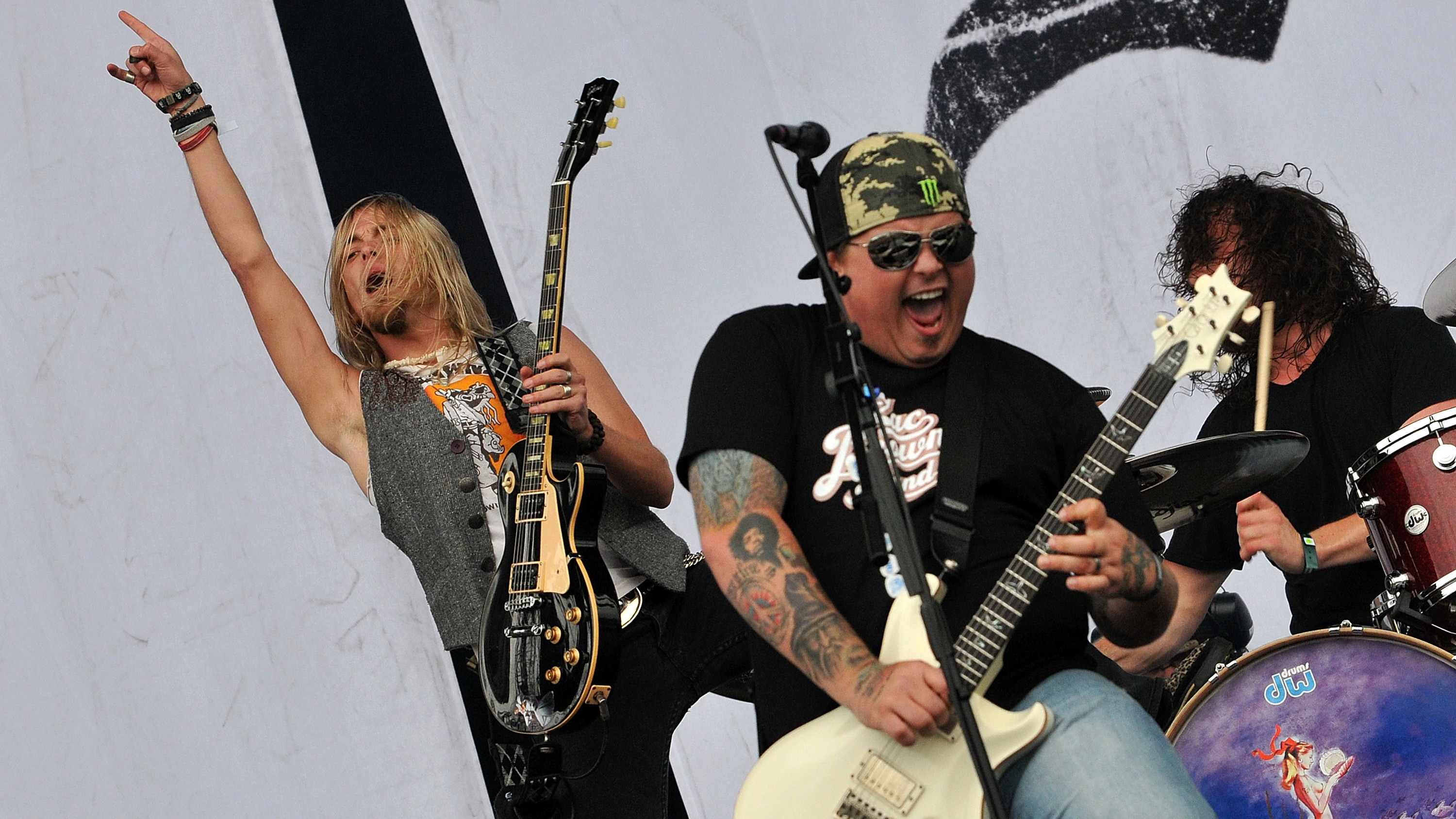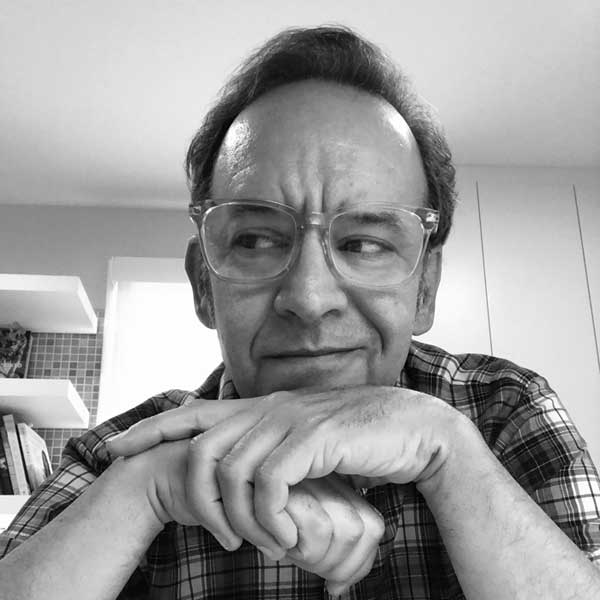This article originally appeared in Classic Rock #197.
“Hey bud, y’all have some friends up here at the house to interview you for Classic Rock. Holler at me when you get this.”
Richard Young, a southern grizzly with the long, silver hair of a founding father, is pacing around the kitchen of his 1890s-era farmhouse as he leaves this phone message. He apologises for his son, Black Stone Cherry drummer John Fred Young, who is missing in action on this bright Sunday afternoon in February. “These kids have a whole lot goin’ on…” he explains with a grin.
The elder Young knows what that’s like. He’s the guitarist and founding member of The Kentucky Headhunters, a Grammy-winning southern rock band who had a string of hits in the 90s and are still busy touring and making records. In 2001, Young’s son John Fred and three high-school friends – bassist Jon Lawhon, guitarist Ben Wells and singer-guitarist Chris Robertson – commandeered The Headhunters’ rehearsal space and plunged headlong into the family business.
“At first, my dad was like, ‘You can do your band thing, whatever,’ thinking we’d just hang out and smoke cigarettes after school,” says John Fred. “But we started putting a lot of practice in. Then my dad produced our first album, in 2006. We’ve had a ton of support from our families. Ben’s dad would drive us around in a fifteen-passenger van everywhere before any of us had our driver’s licence.”
“There was amazing chemistry right away,” recalls Wells. “Within a day we were a band, and the goal from the get-go was to write our own music. We knew what we wanted to do. We practised every single day. We were really focused and goal-oriented. We were after it.”
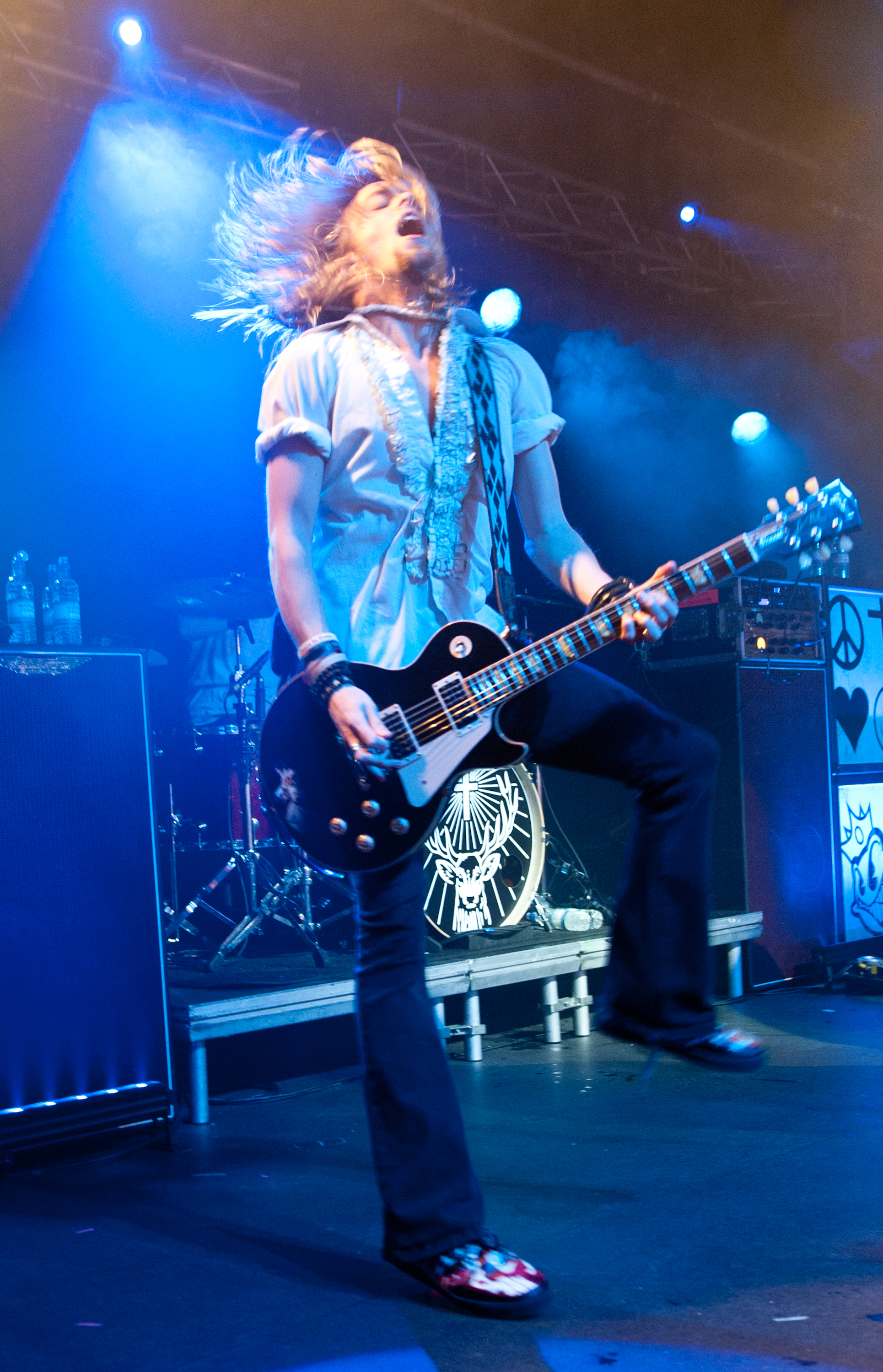
In fact, within a few weeks of their first rehearsal, the newly born Black Stone Cherry (the name is taken from BlackStone Cigars, which come in different flavours, including cherry) had debuted their first two original songs at a local talent show.
Now, 13 years later, they’re not only home-town heroes, but they’re also one of the hottest new rock bands in Europe, especially in the UK. From relative unknowns on a club tour in 2007, BSC have charted a dazzling ascent, racking up three Top 20 albums, A-list radio plays, and opening slots for Def Leppard and Lynyrd Skynyrd along the way. Even more meaningful, the band have been touted as being leaders of the next generation of classic rock bands.
And now, on the eve of their fourth album, with headline shows at Wembley this autumn to look forward to on their gig list, they’re poised on the brink of a stardom they can barely grasp. “It’s like a Cinderella story,” says Chris Robertson. “For lightning to strike twice in the same small town: The Headhunters, now us. And for it to come out of the same bloodline, and all that to happen and to work out the way it did? The big man upstairs obviously had something special lined up for us.”
The small town that Black Stone Cherry call home is Edmonton, Kentucky, population 1,575. And after a few more calls and messages are exchanged in the name of the magazine interview, Richard Young is in his black GMC pickup truck, leading us on a high-speed tour through Edmonton’s sepia-toned tobacco fields and unmarked winding back roads, en route to the exact location where that rock’n’roll lightning has struck twice. Appropriately, it’s a place beyond the reach of GPS and Google Maps. Welcome to the headquarters and heart of all things Black Stone Cherry – the fabled Practice House.
From the outside, it’s not much to see – a ramshackle wooden structure with peeling white paint and brick pylons, its front porch littered with a well-worn red vinyl couch, a propane tank, an old PC, cardboard boxes, plastic buckets and four or five sleepy stray cats. Tobacco fields stretch out in every direction. Alongside the house, two donkeys snort and bray under a gnarled Spanish elm.
Inside the Practice House, it’s a 15x15-foot weather-boarded rock’n’roll shrine, what John Fred Young calls “a very spiritual place”. Icons and cult heroes gaze down from every crowded, tattered inch of the walls: to the left, Jimi Hendrix, Lou Reed, John Lennon; straight ahead, Dolly Parton, NRBQ, Duane Eddy; to the right, Deep Purple, Alvin Lee, Lynyrd Skynyrd.
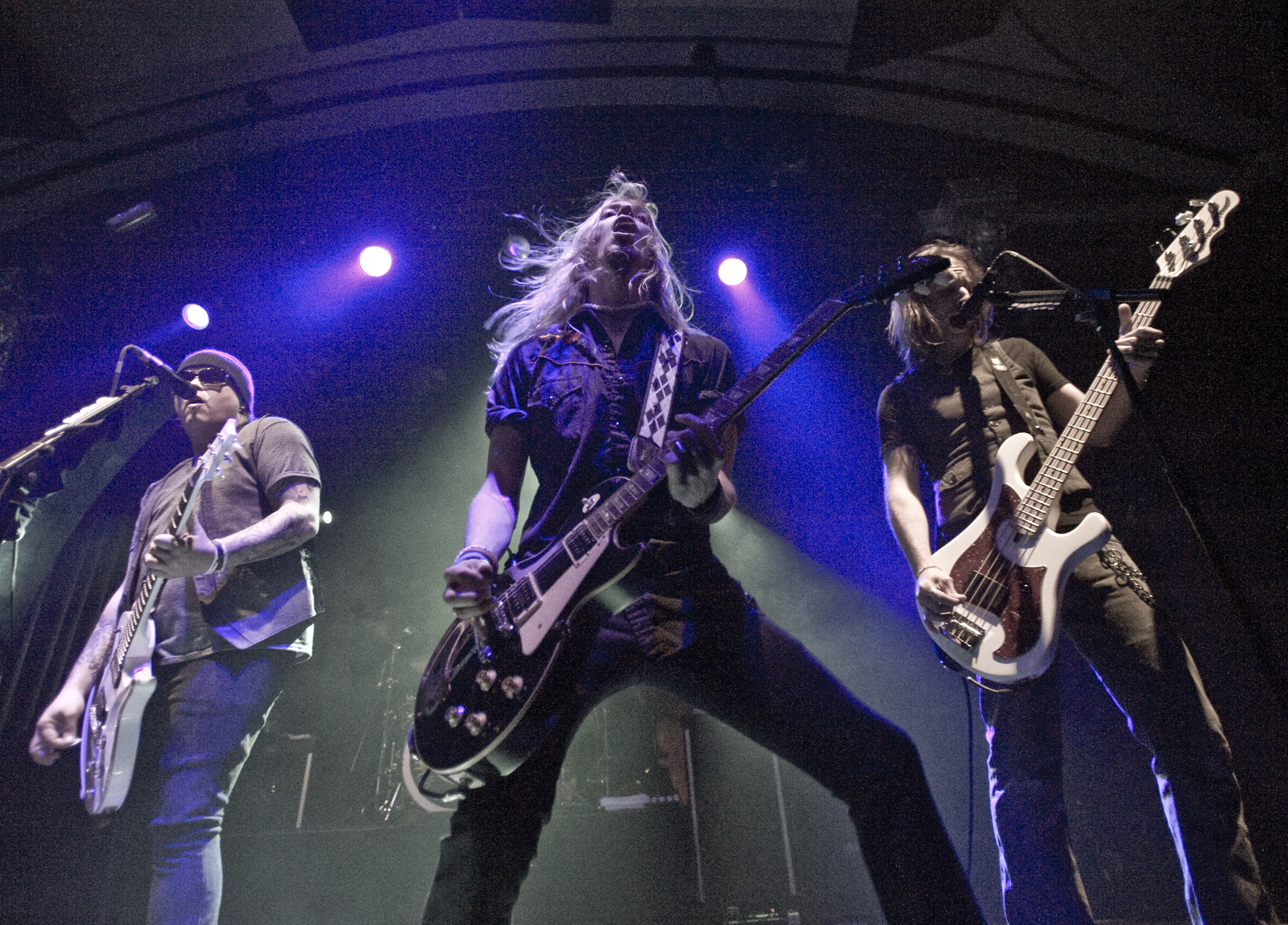
“When you’re looking around this place, you can’t help but feel musical,” says Robertson. “Freddie King. Captain Beefheart. Mitch Ryder And The Detroit Wheels. We’re very fortunate that we were brought up around so much great music – even obscure bands like Cactus and Trapeze. Most people in their late twenties don’t know who those bands are. But that’s kind of the well we come from.
“The Headhunters had this place back when they were Itchy Brother,” Robertson continues. “They started here in 1968. They started hanging up all the album covers and posters because basically there’s no insulation. When it’s cold outside, the wind blows right through the walls. The pictures and posters stop some of the wind.”
“Not only are we in a farmhouse in the middle of nowhere in the woods, the closest town is also in the middle of nowhere,” Jon Lawhon adds with a laugh. “This place was so far removed from what was going on in New York or LA or Chicago, so we never had to fit into any scene. We created our own scene. Abraham Lincoln, who was from Kentucky, had a quote that speaks to this: ‘You can either follow the paths laid before you by the forefathers, or you can cut your own trail and inspire other people to do the same.’ And that’s kind of what we did, unknowingly.
- Under The Influence: Black Stone Cherry’s Chris Robertson
- Everything you ever wanted to know about Black Stone Cherry's new album
- The 10 best Southern rock songs, by Johnny Van Zant
- Blackberry Smoke, Black Stone Cherry and Southern Rock’s new generation
“Looking at the walls in here, when you’ve got all these iconic figures that have waged their own wars of music over the years, we’re sitting here, writing our own music and thinking: ‘Okay, does it stand up to that?’ We never set out to be like any of these bands – we just wanted to write good music.”
It’s chilly in the Practice House today. And while Robertson, Lawhon, Wells and Young wait for the portable plug-in electric heater to nudge the temperature up a few degrees, Young lights a stick of incense, to “get rid of the smell of cat shit”. The guys, coats over untucked shirts and ripped jeans, lounge around near their battle stations. Conversation ping-pongs from Matthew McConaughey’s amazing performance in Dallas Buyers Club to the edgy new Eric Church album The Outsiders, and on to a supremely weird gig that BSC once did on a Swedish cruise ship.
“It was all these teenage kids,” Young recalls with a grin, “every one of them was hammered, and there was some dude pushing a naked girl around in a shopping cart. It was so wild, we felt like parents, saying: ‘Hey, where is your mother?’”
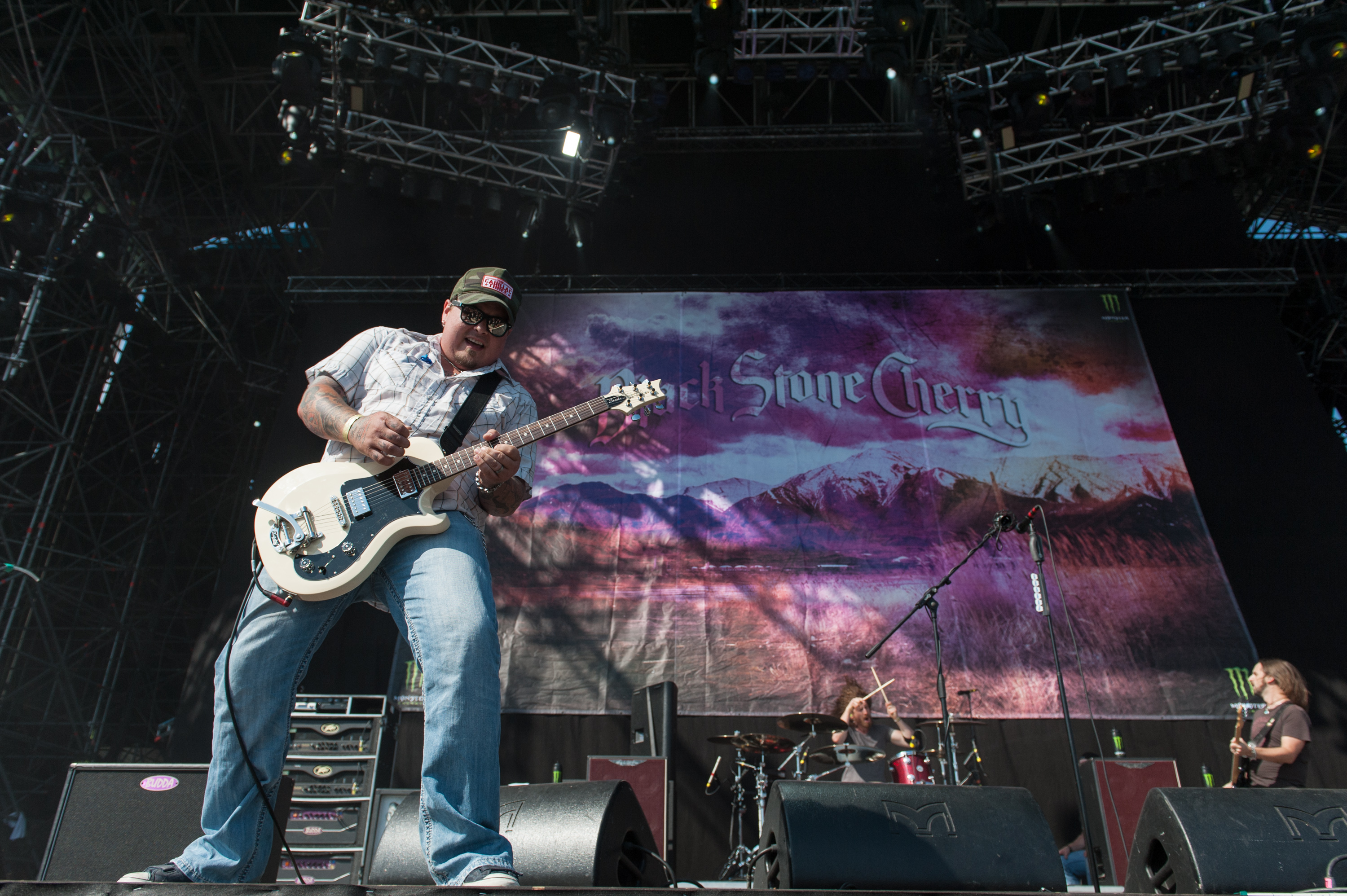
There’s a warm camaraderie among the four band members, the easy rhythm of long-time pals who grew up together and have seen each other at their best and their worst. In fact, it was a dark plunge into one of those personal valleys that set the tone and inspired many of the songs on their excellent new album, Magic Mountain. A year and a half ago, between their last two albums, Robertson hit an emotional wall that threatened to permanently derail the band.
“I was in a bad place,” he says. “There’s no lying about it. The band was in a rough spot. We took some time off. It all really boiled down to me and the issues I was dealing with. I went through this crazy severe depression and anxiety thing. I had problems with prescription medicine addiction. It got so bad I was being woken up ten minutes before we were going on stage. I was a miserable asshole; no one could stand to be around me. I had given up on every single thing in my life – myself, the band, everything – to the point where I was going to commit suicide one day, and I stopped.
“Fortunately, when I’d given up on myself and everything around me, the three guys in the band never gave up on me once. They were like: ‘Dude, come on, you got to pull through. We’re here with you.’ You can hear where we’ve been and everything we’ve been through in these new songs.”
A few sample couplets illustrate what Robertson means: ‘Walking backwards in the sun/Second guessing all that I’ve become’. ‘Bad luck and hard love are tattooed on my spine/Black clouds and holy smoke fuel the train that I drive.’ ‘It took love, it took pain/To make me feel alive today’.
“A lot of the record is about coming out of the dark,” says Robertson. “I think that’s what’s so beautiful about it. Every song has a positive aspect about it. Runaway and Holding On… To Letting Go literally sum up what we’ve gone through over the past couple of years. I can’t say enough how much I wish I could go back and change things, but at the same time it made us who we are, and this beautiful record came out of it. Also – and people can take this however they want to – the best thing that happened to me out of all that darkness was I developed this amazing relationship with Jesus. That is what’s changed my life.”
“We all believe in a master plan,” says Wells. “Chris went through what he went through to set an example, to maybe save somebody else’s life.”
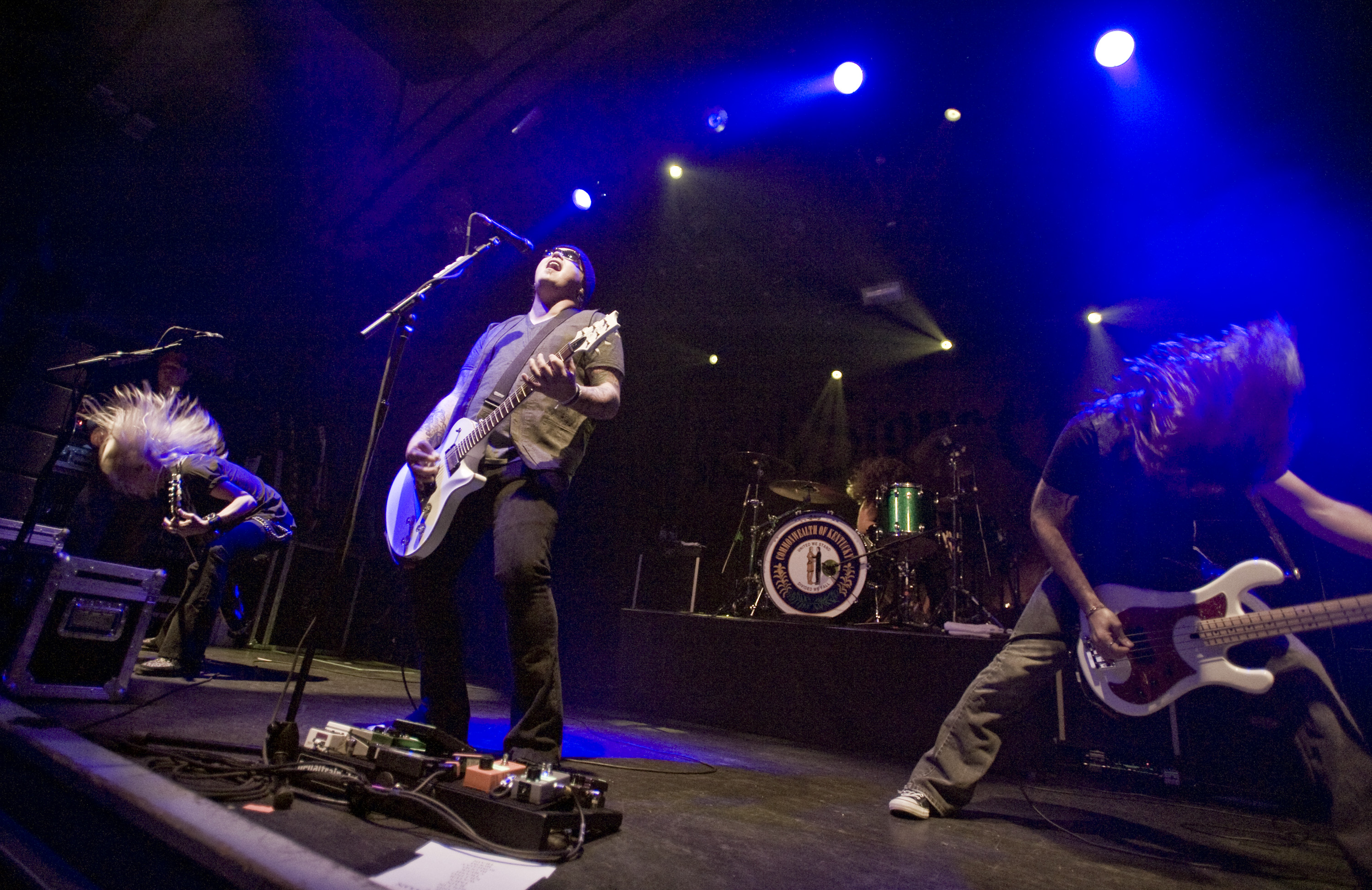
Words like ‘Jesus’ and ‘master plan’ can be dangerously divisive ones for a rock band, especially outside the Bible Belt of the southern United States. In a photo posted on the band’s Facebook page (359,000 Likes and counting) earlier this year, Robertson is seen moments after being baptised by Wells. While most of the fan comments on the photo were positive and supportive, there were some snarky, negative words, and Robertson admits they stung.
“Dude, here’s the thing,” he says. “We’re no different than Black Sabbath or Led Zeppelin, except that I wholeheartedly believe in Jesus. That’s the only difference between me and anybody else who plays rock’n’roll who doesn’t believe. I still drink, I still smoke cigarettes, I still say bad words a whole lot. I was kind of taken aback at first, like, ‘Why are people so negative?’ Just because of us being honest about something. Then I saw all the positive comments and I thought, you know, if someone refuses to like our band and the music we play because of my spiritual belief and my openness, then all I can say is: that’s my life, that’s where we come from, and that’s not an abnormal thing.”
“All four of us came from church before we got here for the interview today,” Wells adds. “But we’re not thumping on anybody’s head, we’re not shoving it down anybody’s throat. We’re proud of it. We have a platform to reach people, and if we can do it – like Head from Korn once said – ‘by sprinkling nuggets everywhere’, then so be it.”
Things have warmed up a bit now in the Practice House. The guys grab their instruments and are ready to run through a few tunes in anticipation of the following week’s sold-out UK shows. First up is the new single, Me And Mary Jane, a stomping, high-decibel ode to rock’n’roll’s favourite sweet leaf. ‘Ain’t nothin’ like a Friday night/And that smell to get ya’ feelin’ right…’ There are lyrical nods to both Lynyrd Skynyrd and Blue Öyster Cult in this catchy song that promises to be one of those concert anthems that will have fans raising their Bic lighters for the next 30 years. In the US, where state-by-state pot legalisation is making the daily news, it’s bound to hit a topical nerve.
“Marijuana has such amazing medicinal purposes,” says Robertson. “But whether you smoke it or not is neither here nor there. All things in moderation, I say. Besides, we’re not the weed band; we’re not Snoop and Dre, sitting here. The song is just about having a good time. It’s not that big of a deal.”
Watching as they tear into another new song, Fiesta Del Fuego, what is a big deal is the marked contrast between the easy-going guys who a few moments earlier were talking about outdoor grills and the ferocious animals bashing out this earth-moving rock’n’roll. Robertson calls this transformation “the flip of the switch”. Young, who is a blur of drumsticks and long, flying curls behind the kit, says: “Even when we started touring back in 2006, people would tell us: ‘You guys are the most energetic live band we’ve ever seen.’ And that’s the biggest compliment we could ever get. I don’t care if it’s twenty people or twenty thousand, when you haven’t played in a while and you get on stage, it’s such a rush. There’s nothing better than that rush.”
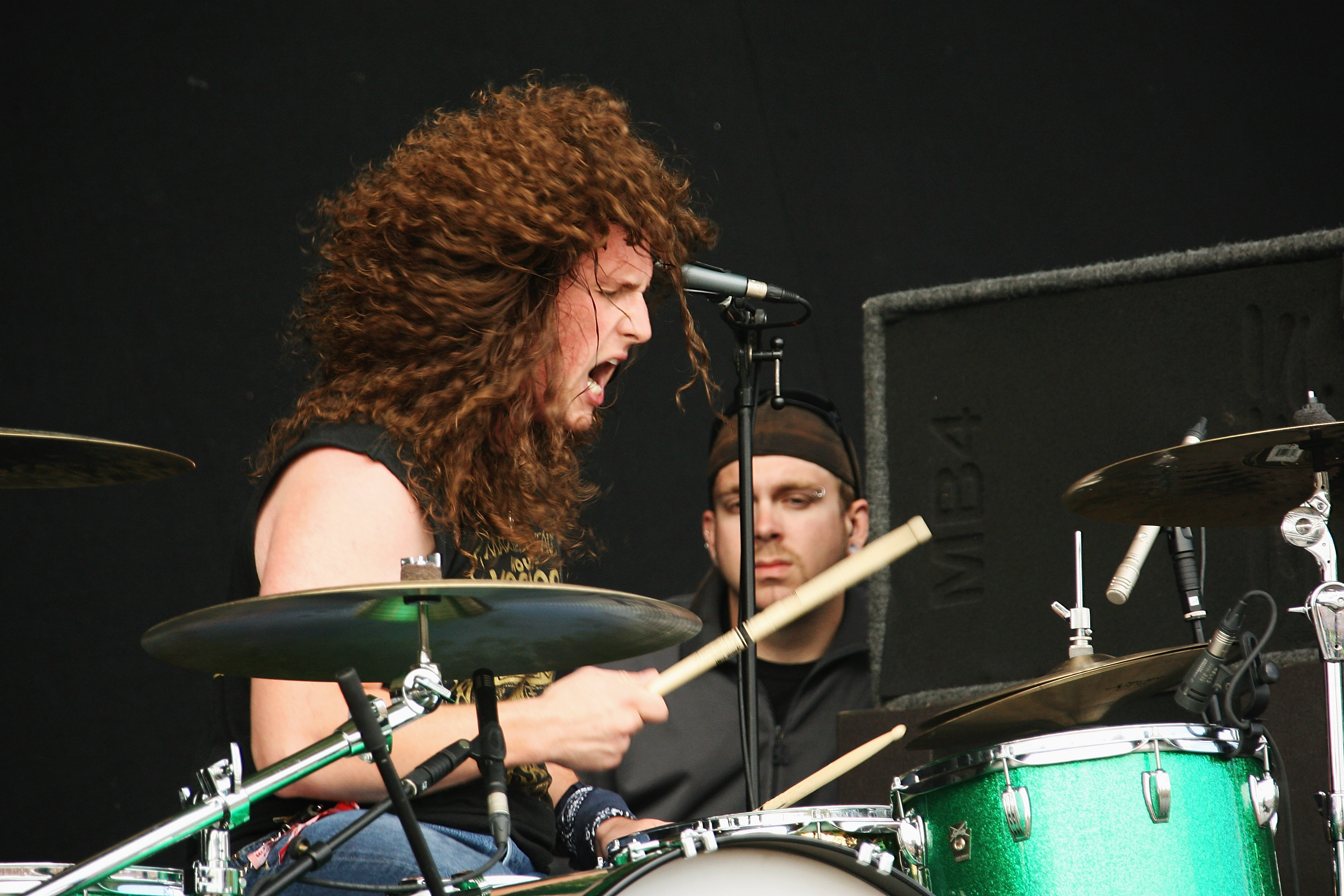
“We’re creating a legacy, and our live performance is one of the biggest things that sells us,” Wells says. “So we have to be hard on ourselves. Not to the point where it’s not fun, but there’s a fine line between having fun and selling a business. The energy we put out on stage is not fabricated whatsoever. John Fred’s not playing like a maniac because it’s cool. It’s just how we feel. So when we write songs, that’s what we write geared towards. We write riffs that we can imagine ourselves playing live on stage.”
“To look out and see a crowd full of people who are singing and smiling and having a good time, that’s the best payoff for us,” Robertson adds. “That’s why you do it.”
It’s this approach that made the band’s first two albums such crowd-pleasers. Powered by the singles Lonely Train and Hell & High Water, their self-titled debut was solid and straightforward, punching multiple classic rock pleasure buttons, from Zeppelin riffs to Skynyrd boogie to AC/DC head-banging energy. The follow-up, 2008’s Folklore And Superstition, found them deepening that musical swagger with southern gothic storytelling on tracks like Reverend Wrinkle and Ghost Of Floyd Collins.
But fans were on the fence about the glossy, radio-friendly sound of their third album, Between The Devil & The Deep Blue Sea, produced by hitmeister Howard Benson (Daughtry, Kelly Clarkson). For some, it strayed into Nickelback territory, robbing BSC of their rowdy rebel soul. But the guys stand by it, as part of their growing process.
For album number four, they had definite ideas about where they wanted to go. “We wanted to get back to the basics of what we did when we were nineteen or twenty, recording that first album,” says Robertson. “That album was so spontaneous and rambunctious. The second record kept a lot of that. The third record had some of our favourite songs on it but it was pretty commercialised. With this album we said, ‘Let’s just go to the Practice House and have fun.’ We just came down and took the chains off. We wrote it for us.”
To help them reconnect with that ‘anything goes’ spirit, BSC hired producer Joe Barresi, best known for his work with Tool, Nine Inch Nails and Queens Of The Stone Age. In pre-production, Barresi and the band whittled down 25 new songs to a lean, mean 13. They then hunkered down in Barresi’s House Of Compression studio in Pasadena, California for a few weeks, with the producer’s black Labrador Bullet as their mascot. There, in Robertson’s words, they had “the most awesome and freeing experience we’ve ever had in a studio”.
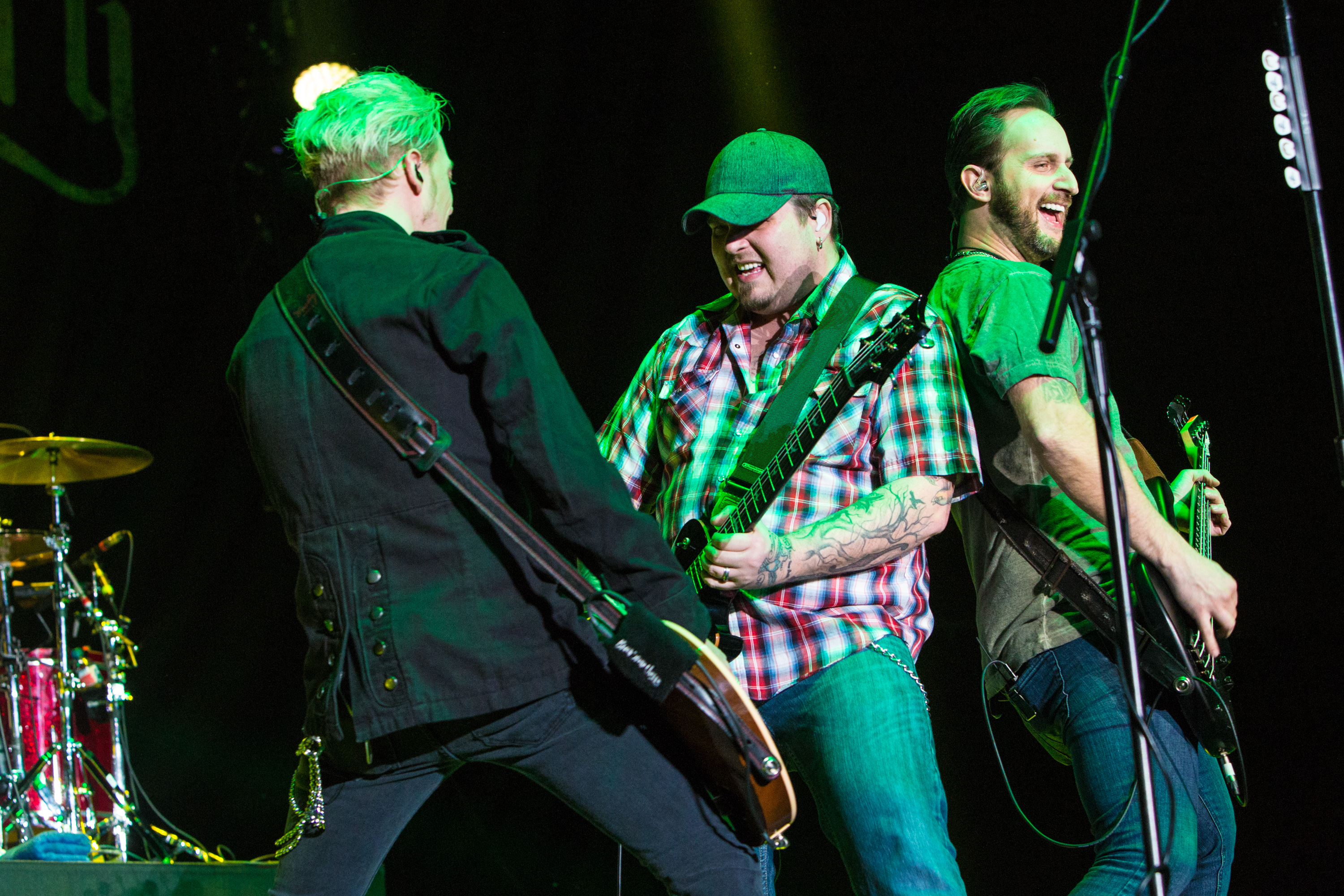
“Barresi is brilliant,” says Lawhon, “but he’s a silent brilliant. He lets bands be what they are.”
“The worst thing to happen to a band like us is to be put in the studio and it’s all about me,” says Robertson. “When they go: ‘The song’s about the singer and the vocal.’ Well, that’s the case in certain bands. But can you imagine Queen without Brian May playing guitar? Or Roger Taylor playing drums? You take away one element and it throws a kink in it.”
“Joe was talking about each person as an individual in the band, which is how we view ourselves,” agrees Wells. “He’s talking about how he didn’t want to tame John Fred and make him play closed hi-hats. He didn’t want Chris to be less bluesy with his vocals. He wanted to hear the difference between two guitar players. He wanted bass runs. He was totally on our same wavelength. He was about extending songs, and adding twin solos. If everybody else is going this way, he was about going the other way. That’s how you’re going to stand out.”
- The History Of Southern Rock In 30 Songs
- Buyer's Guide: Lynyrd Skynyrd
- Class Of 2015: Black Stone Cherry
- Black Stone Cherry: A Year In The Life
“This is the first record we’ve ever made where we weren’t guided or pushed a certain way by our label,” adds Young. “We were left alone. And it was marvellous. I don’t say that in a negative way. Every record we’ve done has been different, and reflected the stage where we were. I’m extremely proud of all our albums. But on this record, Joe let us be a band. If someone did something off the cuff, we kept it. We cut analogue, to two-inch tape. And because we were recording to two-inch tape we had to get the best takes. This is the one where we really got to be ourselves.”
“Everybody always asks us: ‘Why are you so much better live than you are on record?’ says Robertson. “That’s always been a thing. With this record, you pop it in, and you put on some flashing lights in your bedroom, you might think you’re at a Black Stone Cherry show.”
Which should be a comfort for UK and European fans, who’ve been scrambling to get tickets for the band’s upcoming concerts in the spring and autumn. Talking about the personal connection they’ve made abroad, Lawhon says: “It’s meant the world to us. Aside from the fact that we want to play music forever, to be able to do it over there in such a big way is astounding to us. We’re just four dudes who live in the country. We’re more grateful than we could ever express for all the people in the UK and Europe. If it wasn’t for them, I don’t know where we’d be.”
Young agrees. “I personally feel a connection to the English audiences so deep, because we first went over there in a little airport shuttle van. We were scared to death. We get to these gigs and we’re opening for a band called Hinder, from America, and we’re playing these rooms with 250 seats. And we’d get done, these people would come out to meet us, and the enthusiasm and energy they had for us was awesome, man. It was very genuine.
“What’s great is that each time we go back, we keep doing bigger rooms and bigger tours, we see the same fans, and they’re like family to us now. It’s nuts for four dudes from Kentucky to be able to do this. We’re going to be doing arenas later this year. We did it from the ground up. We didn’t have radio help, we didn’t have record label help. We went over and carved our path through live shows.”
“I’m not sure, but I think what the audiences respond to is the honesty,” reckons Wells. “We didn’t go over trying to be Led Zeppelin or Black Sabbath. We didn’t try to sound like Lynyrd Skynyrd or the Allman Brothers. We took all those things and filtered them through our own personalities. I think the audiences really latched on to that, and the live performance.
“We’re very personable. We’re not ‘too cool for school’ with our fans. I think they see we’re just normal. They have seriously given us so much. I don’t know how to put in words what the European continent means to us.”
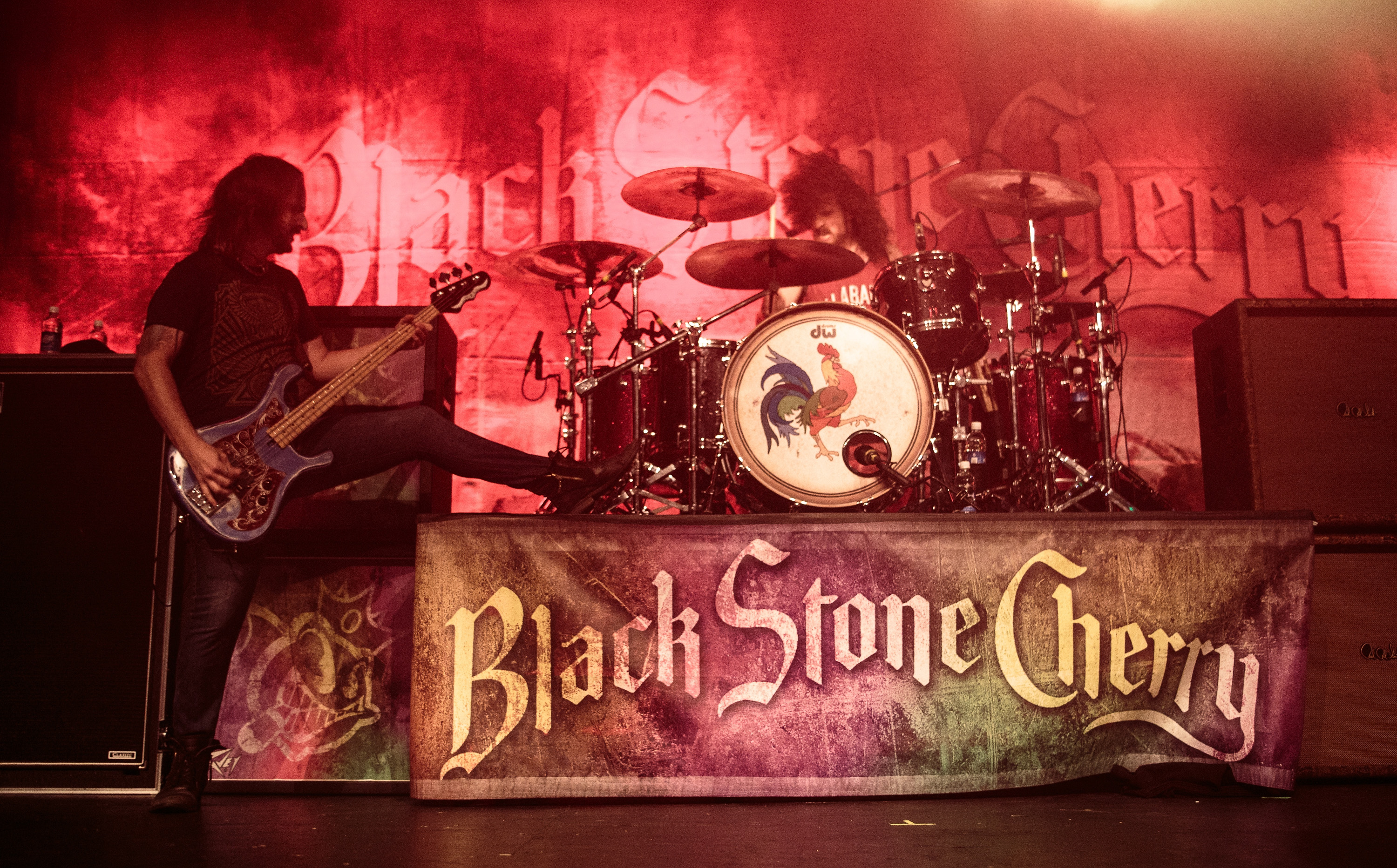
With rehearsal and interviews at the Practice House wrapped up, we join the band for dinner at Los Mariachis, their favourite Mexican restaurant, a few miles down the road in nearby Glasgow, Kentucky. Half the people in the place seem to know the guys, waving to them as they come in.
Over a table crowded with chips, salsa, queso, burritos and taco salads, they’re talking about possible opening bands for their European tour, the recent incident in Bowling Green where a sinkhole swallowed eight Corvettes, and the news that Michael Keaton might be making a sequel to Beetlejuice. Conversation then rolls around to Robertson’s latest tattoo. It’s a cross surrounded by a series of numbers. “It’s the most meaningful one I have,” he says, pointing to the numbers. “It’s my son Declan’s birthday, the date me and Ashley got married, and then the date I got saved.”
Young notices another significance in the numbers, beyond the anniversaries. “Wait, we started our band in ’01, our lucky number as a band is thirteen, and twelve is how many years we’ve been together. Whoa, that’s wild.”
“That goes back to my whole master plan theory,” a grinning Wells says.
Robertson laughs and explains the master plan: “Black Stone Cherry: we love huntin’, guns, Jesus and rock’n’roll!”
“And cheese burritos,” adds Wells.
Amen.
Country Strong - How BSC Conquered Nashville
“Next thing you know they’re blowing up, with three straight number ones. Then we found out Stay was their next single. I remember we were in Cincinnati, on the Skynyrd tour, and we were backstage, and right when they kicked into Free Bird is when we got the news that Stay went to number one. It was a big, pivotal, high-five moment, like in a movie.”
And now, on Magic Mountain, there’s another potential country smash in Hollywood In Kentucky. “It’s kind of the curveball song on the new album,” Wells says with a laugh. “We’re one of those bands that can rock the harder stuff, but we’re also country dudes, you know? We love honky tonkin’ and country music.”
Sweet Home Kentucky - The Band Share A Slice Of Southern Life
If it sounds idyllic, that’s the vibe of this charming little town. “A lot of who we are derives from where we’re from,” says Robertson, who’s married with a new baby.
And when the band are off the road and between albums, they do what the locals do – farm, spend time with family, enjoy nature and go to church on Sundays.
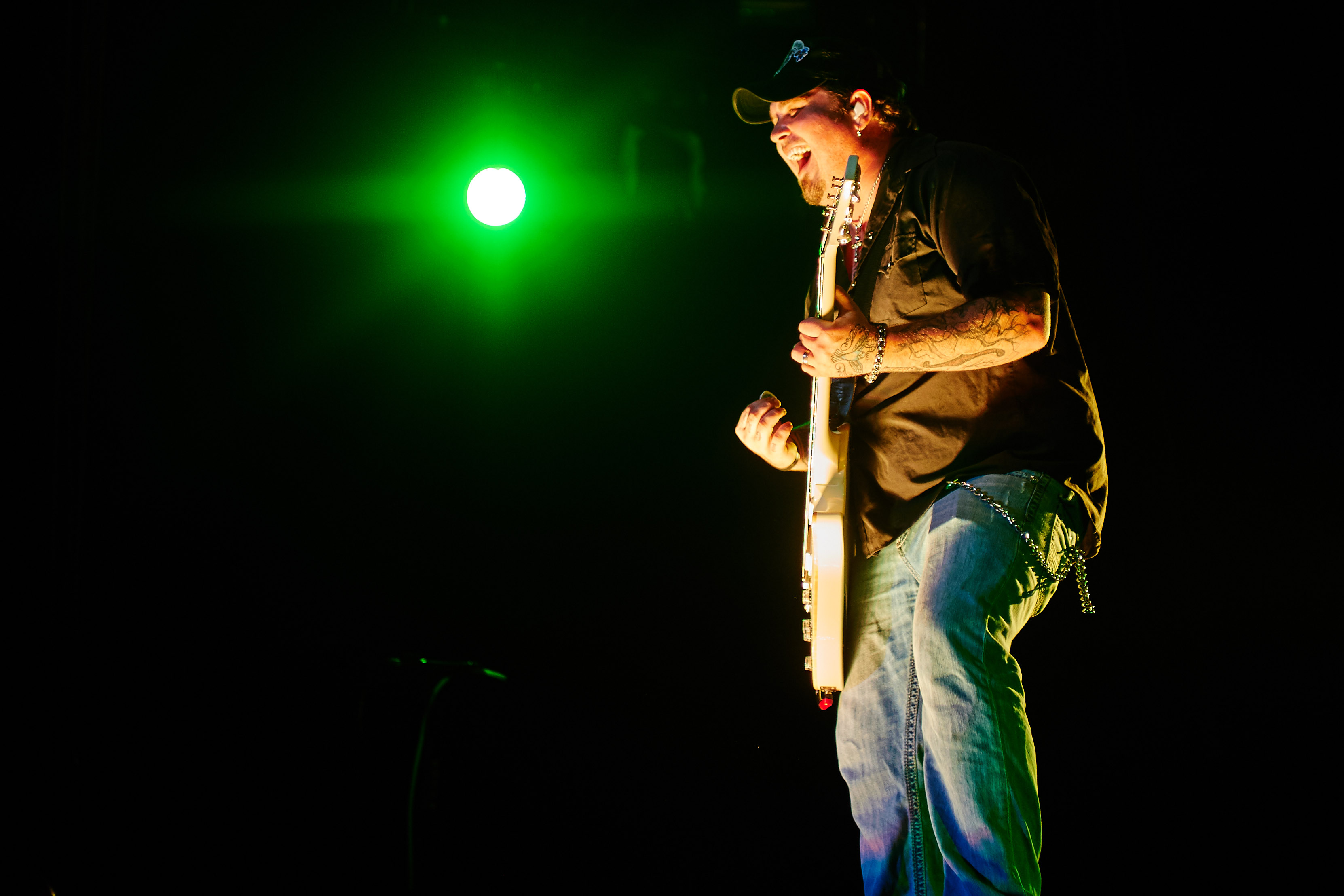
“I also love to hunt and shoot guns,” Robertson adds. “Mostly I hunt white-tail deer and turkey. I love the taste of wild turkey, and my family all like deer meat, so I get the relaxation of sitting in the woods by myself at 4am, when it’s nice and quiet and peaceful. It’s awesome.”
Young, who lives with his parents, enjoys “gardening and going to junk and antique stores”, while Lawhon, a father of two, says: “When I’m not with my kids or practising with the band, I’m doing some kind of graphic art – photography, visual stuff on the computer.”
Wells enjoys films and driving around in his sporty black Ford Mustang. “We don’t have any big heads about us,” he says. “A lot of people might assume if you make albums and tour and play in front of a lot of people that maybe you have kind of an ego. But our families didn’t raise us like that. We’re just humble people.”
For more on the rise of Southern Rock, then click on the link below.
Black Stone Cherry and The Kentucky Headhunters play the Ramblin Man Fair this weekend.
